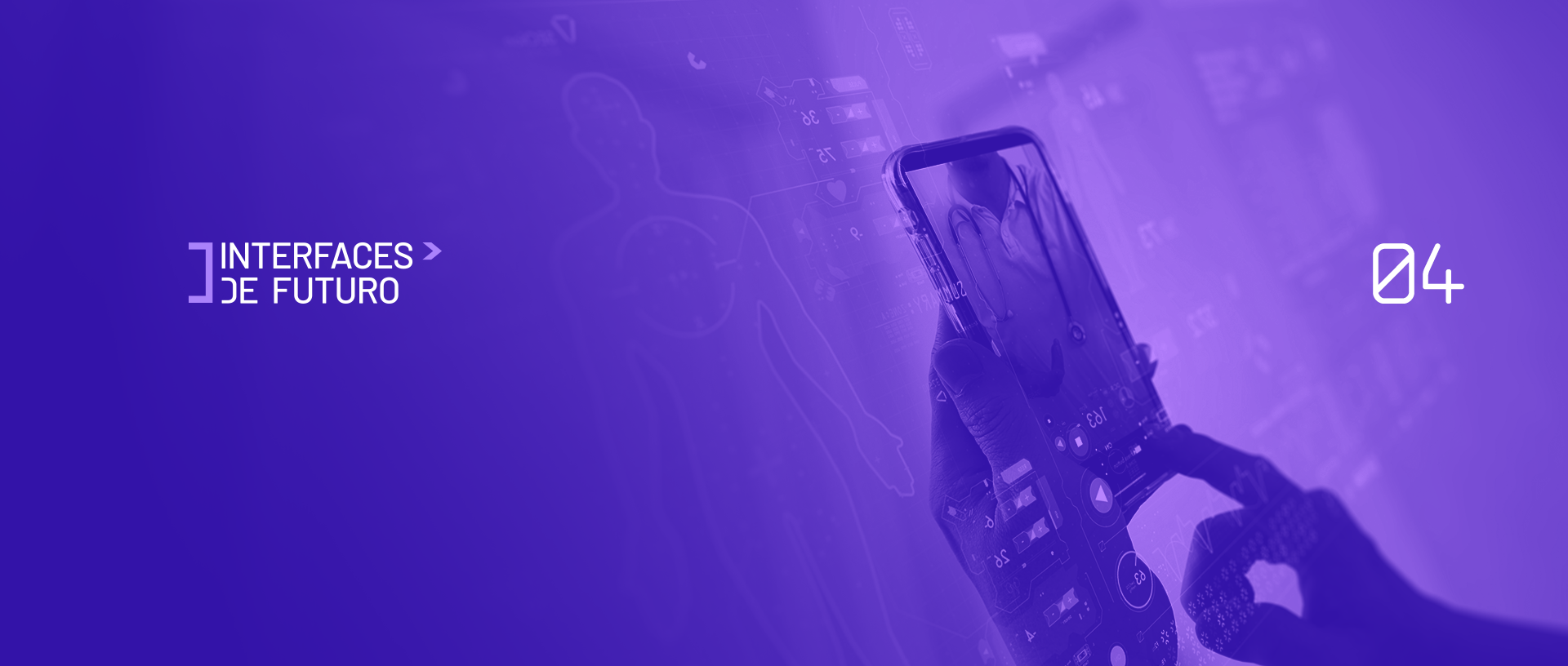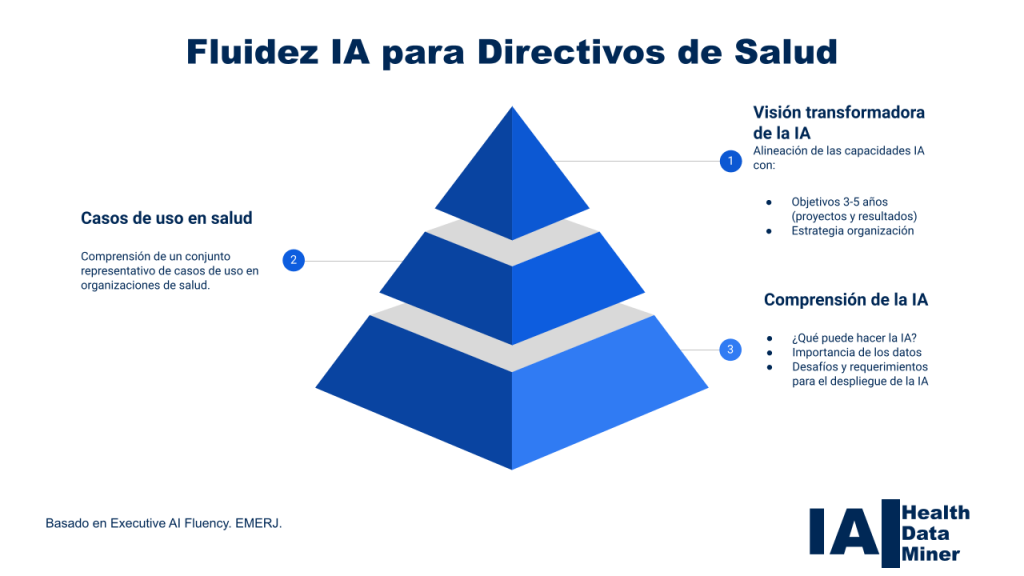Artificial intelligence in healthcare. The data that saves lives.
A little before midnight on 31 December 2019, an artificial intelligence algorithm from the Canadian start-up BlueDot gave an alarming warning. When the information was analysed, it was confirmed that BlueDot was warning about a possible outbreak of unidentified pneumonia in Wuhan, China. It was COVID-19.
One month after BlueDot predicted the pandemic and its epicentre, the WHO raised the alarm worldwide. This is just one clear example of how the progress in artificial intelligence and massive data analysis can have a profound impact on the world of healthcare. In this sense, what challenges are now being tackled by AI and what can we expect in the coming years?
Artificial intelligence applied to the world of healthcare
Until a few years ago, artificial intelligence was an unknown technology for most people, associated with the world of science fiction and futuristic scenarios. Today, it is a reality that is having a transformative impact on nearly all spheres of human life.
We can see a clear example of this in the field of healthcare, where AI can be put to countless practical uses. In order to look at this matter in greater depth, we should hear the opinion of experts like Juan Francisco Vallalta, who was recently interviewed by the Sciling team.
Juan Francisco Vallalta has a degree in physical sciences and is a specialist in data mining and analysis with over 20 years’ experience in managing information technology projects in hospitals. He specialises in hospital information systems, electronic clinical records, predictive modelling and computer vision.
Interest in AI applications in the medical sphere prompted Vallalta in 2019 to launch a project called Health Data Miner in order to bring machine learning to healthcare professionals. He currently heads the artificial intelligence office Laberit, a company that provides solutions for digital transformation in healthcare and industrial and public environments.
Use cases of AI in healthcare
For Vallalta, artificial intelligence is a transformative type of technology, a characteristic that is also known as General-Purpose Technology (GPT). GPTs are cross-cutting technologies; in other words, they have the ability to have an impact on any sector or field of human life, in addition to becoming a motor for innovation to carry out tasks that were thought to be impossible before.
Seen from this perspective, AI has multiple applications in the medical sphere that not only help carry out routine tasks, but also open up new fields of activity. Generally speaking, the main use cases for artificial intelligence in the healthcare sector are:
- Operational and management aspects.
- Clinical care.
- Faster drug development.
- Therapies, prosthetics and domotics.
1.Operational and management aspects
One of the medical spheres where all of the potential of AI can be put to great use is in the hospital sector, specifically in operational and management aspects. That is because hospitals work like any other organisation, with operational procedures that require efficient handling of large amounts of information.
In this vein, advances in artificial intelligence with massive data analysis are of great help. For example, AI could predict the amount of patients that will be assisted every day in a hospital’s emergency area. This type of information will help to take decisions as regards resource management.
2. Clinical assistance: prevention, diagnosis, treatment and monitoring of illnesses
Likewise, the hospital sphere has benefited a great deal from advances in artificial intelligence to provide more efficient clinical assistance. The procedures of diagnosis, treatment and monitoring of pathologies is improving by leaps and bounds to provide more personalised and effective medical care.
- One clear example of this is algorithmic medicine, which involves applying artificial intelligence to the early detection of illnesses.
- Similarly, the company IBM has developed a virtual assistant called Watson to help medical staff know the best steps to take to treat each patient.
3.Faster drug development
AI also provides numerous advantages in the field of pharmacology, a healthcare sector that has to deal with big amounts of data. The progress in artificial intelligence helps researchers in their work in this area by analysing genetic sequences and making combinations to create new drugs and other applications.
4. Domotics and smart prosthetics
The introduction of smart prosthetics, capable of memorising a person’s patterns of movement to help their recovery, are another example of how AI is revolutionising the medical world. Likewise, the headway in domotics is helping disabled and older patients to carry out everyday tasks with minimal physical effort.
Risks and challenges to be overcome
It is easy to get excited when thinking about all the possible uses that IA could have in the medical sphere. Even so, although there is a wide range of opportunities, there are also some challenges and risks that cannot be ignored and which make it more difficult to apply these technologies in the healthcare sector.
Firstly, while it is true that there has been a great deal of progress in developing AI-related technologies, there is still a long way to go. In the words of Juan Francisco Vallalta, we are in an “embryonic stage” of the process, especially considering all of the challenges involved in applying AI in healthcare.
1. Patient safety
One very important aspect of applying AI systems in the healthcare sector concerns patients’ safety. Unlike other sectors like digital marketing or retail, in the clinical sphere AI is used as a tool to diagnose illnesses, save lives and improve the welfare of human beings.
Hence, in clinical applications it is necessary to demonstrate that AI does not harm patients and that it has a positive clinical impact backed by scientific evidence. In this sense, perhaps the biggest challenge is to gain the trust of medical institutions for them to become willing to implement AI systems in their analytical procedures.
2. Explainability in the healthcare sector
In order for doctors and patients to feel safe about using AI in clinical analysis procedures, it is important to gain their trust. To do so, they need to have clear information at their disposal about the behaviour of AI models. This is what we are referring to when we talk about explainability.
- Explainability is an essential factor in ethical artificial intelligence.
- It involves the ability to explain with transparent clarity how artificial intelligence systems come to their predictions and decisions.
- Such information is very important, since the results generated by an algorithm can affect people for better or for worse.
That said, giving precise explanations of the predictions made by a model is simple if the model is also simple. But things get tougher when the number of variables increases, or when a lot of decisions need to be taken in a few seconds. The intention today is to make progress in finding a balance between explainability and accuracy.
3. Privacy and handling data
Another challenge faced by AI and Big Data in healthcare concerns handling data and the patient’s privacy. Artificial intelligence systems are fed with data, but that data is the property of the patient; it does not belong to the healthcare institutions. Therefore, it is necessary to find the way to use such data without risking patients’ privacy.
In Spain, any progress made in this sense must fall in line with the rules set out by:
- The General Data Protection Regulation passed by the European Union.
- The Spanish Organic Law on Data Protection.
Without a doubt, this will enable each and every patient’s personal data to be used in a secure, trustworthy way. In fact, this set of laws on data protection has made Spain and other European countries pioneers in regulations ensuring trustworthy use of data in AI.
4. The robustness of AI systems
Lastly, there is another challenge faced by AI that should be noted in order to truly improve levels of efficiency in the healthcare world: the robustness of artificial intelligence systems and the need for them to be constantly monitored and updated depending on the context.
Machine learning professionals must ensure that the artificial intelligence systems created for the healthcare sector are stable, that they work properly and that they cannot be easily disturbed or manipulated. This point is strongly related to ensuring patients’ safety and giving them quality healthcare.
According to Juan F. Vallalta, the main problem is that there are still no standards for creating artificial intelligence systems in healthcare setting out the steps to follow and the limits to be observed on creating such systems. Fortunately, AI has a long track record of goals reached and challenges overcome.
Centaur profiles in the field of healthcare and the concept of the “human in the loop”
On the other hand, it is important to stress that including AI in management processes, clinical analyses and medical research is not an attempt to replace healthcare professionals. Touching upon this topic, Vallalta points to the concept of augmented intelligence or collaborative intelligence as the result of the human and the algorithm joining forces.
This collaborative approach is the one that has predominated since AI’s full potential became known. And it is especially necessary when applying machine learning models to clinical analysis in healthcare institutions. It will always be necessary for humans to be present in such environments, above all when taking decisions.
In order to achieve optimum levels of interaction, both the healthcare professionals and the AI systems must be prepared or “trained” with this aim.
- On the human side, it is essential to have professionals trained in the use of AI applied to the medical environment.
- For their part, the AI models must be designed to enable and facilitate human intervention.
Hybrid talent and collaborative models
Collaboration between human intelligence and artificial intelligence to achieve common goals is known as a “centaur profile”. Basically, the healthcare professionals are required to have a set of skills that enable them to interact with artificial intelligence processes.
Indeed, the most advanced AI systems are set up in such a way that man and machine may interact continually by means of a mechanism known as the “human in the loop” (HITL). This mechanism enables the human to give direct feedback to an AI model following previously established parameters.
Applying these concepts to the medical field gives results that would be unachievable for a machine or a human on their own. If the AI system cannot solve a problem, the medical professional can conveniently intervene. Hence, the AI receives feedback and learns to give increasingly better outcomes.
The future of AI
Finally, what can we expect in the coming years as regards AI and the healthcare sector? Taking into account all of the challenges that AI has yet to overcome, its integration in the clinical environment remains a long-term goal. Fortunately, the work in that direction is continuing to give good results.
In Juan F. Vallalta’s opinion, the first systems to be perfected by means of AI and Big Data analysis will be diagnostic and management systems in the healthcare sector. Then, advances in artificial intelligence will make it possible to reinvent work in the medical field, with a profound impact on such an important and sensitive sector for our society.
If you’d like to know more, you can make an appointment with us here
Find out more
Do you need to know how artificial intelligence can transform your organisation?
Get in touch with us. We can organise a training session for your company or a made-to-measure strategic workshop so that you and your employees can discover how artificial intelligence can transform your business.








